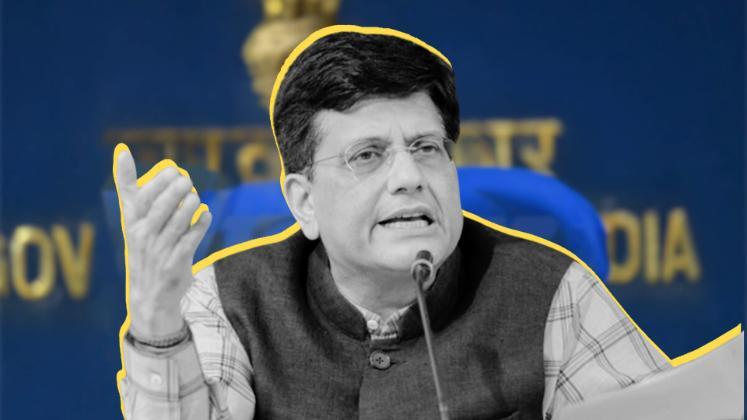In the presence of Piyush Goyal, Minister of State for Textiles, Darshna Jardosh, Secretary Textiles, Rachna Shah, Textile Commissioner, Roop Rashi, Trade Advisor, Shubhra, Joint Secretary Amit and representatives from NITMA, PTA Users’ Association, other trade bodies, and stakeholders, a meeting was called on 18th January 2024, at the Udyog Bhawan in New Delhi.
The representatives of the different associations and trade bodies expressed their unwavering concern about the significant influx of cheap imports, amounting to approximately 1000 metric tonnes per day, of Chinese knitted fabric mixed with woven fabric. This is causing India’s upstream textile industry to be underutilised. As a result, domestic industry is exhibiting the following negative effects:
Important industries including knitting, spinning, dyeing, and fibre units are currently in danger of closing. The implementation of the new expansions under the PLI and PM Mitra Park schemes has been temporarily halted by domestic entrepreneurs, including both seasoned veterans and promising newcomers. A huge loss of revenue , of both direct and indirect taxes , to the exchequer that could well be in the range of Rs. 6,000 -7,000 crores annually.
Because custom charges on knitted fabric are far higher than those on woven fabric, finished knitted fabric is being imported at prices comparable to those of spun yarn from India.
The Ministers and Secretary of Textiles were presented with a solution by industry leaders and experts at the meeting: equalising the custom duties on knitted fabrics with those imposed on woven fabrics. This action would essentially stop the importing of knitted and woven textiles with low invoice values.
Currently, the customs duty on woven fabric is set at 20 per cent or Rs 115/- to Rs 150/- per kg, whichever amount is higher. In contrast, the custom duty on knitted fabric is currently fixed at a rate of 20 per cent with no capping.
TAI & NITMA representative R K Vij suggested that import knitted fabric pricing be established at least US $ 4.5 to US $ 5.0 per kilogramme to ensure fair trade practices. Whereas, the typical cost of importing these Chinese knit textiles is currently between US $ 1.40 and 1.50 per kilogramme.
Piyush Goyal, Darshna Jardosh and Rachna Shah, promptly identified the primary underlying issue and assured the stakeholders in attendance that this anomaly would be resolved within two months.
In reaction to the proceedings of the mentioned meeting, Sanjay Garg, President of NITMA, stated that during the previous year, NITMA has been actively pursuing the crucial issue of inexpensively imported knitted fabric from China, interacting with all relevant ministries.
Sanjay Garg has expressed his sincere appreciation and fully supports Piyush Goyal’s pledge to swiftly settle the issue in a few months.







